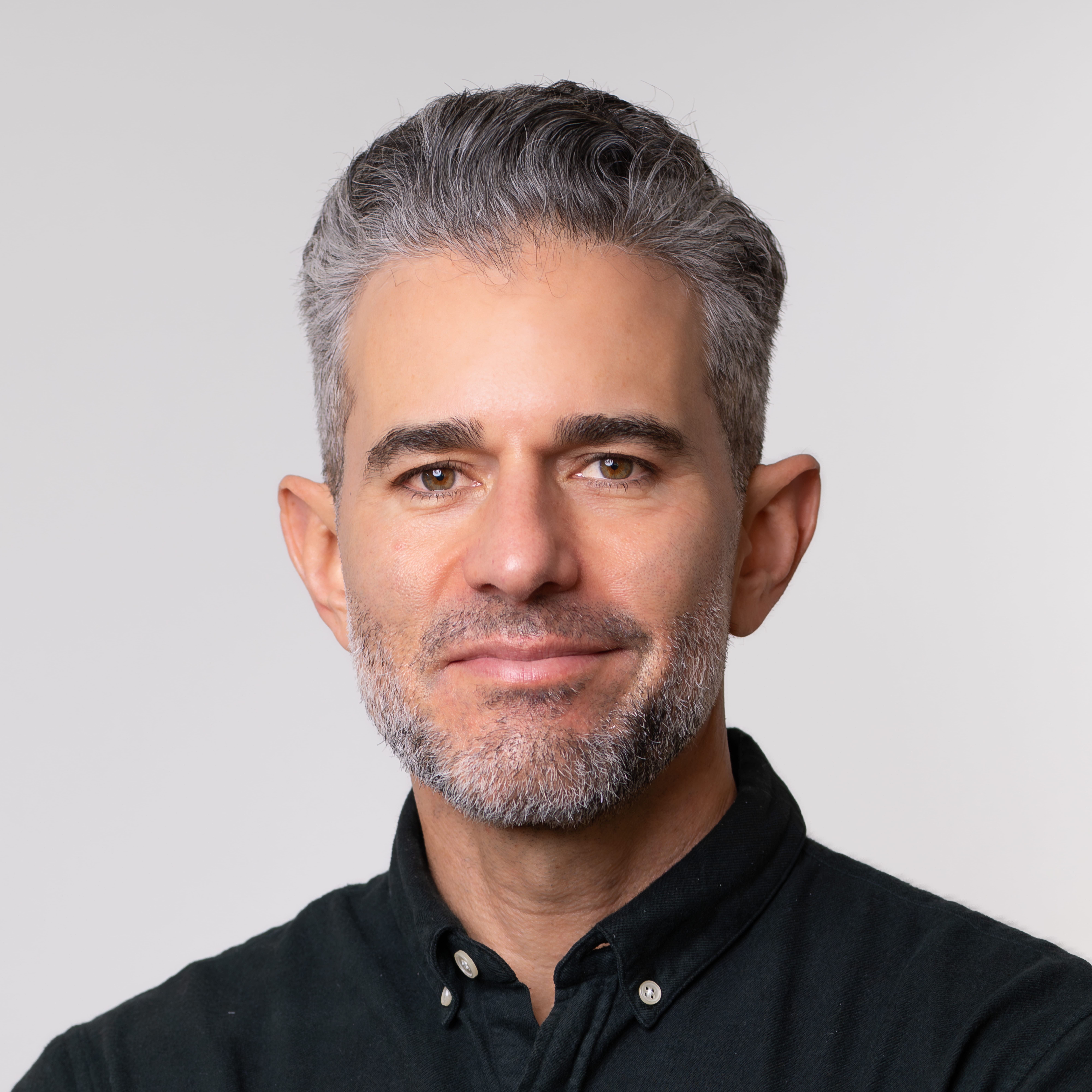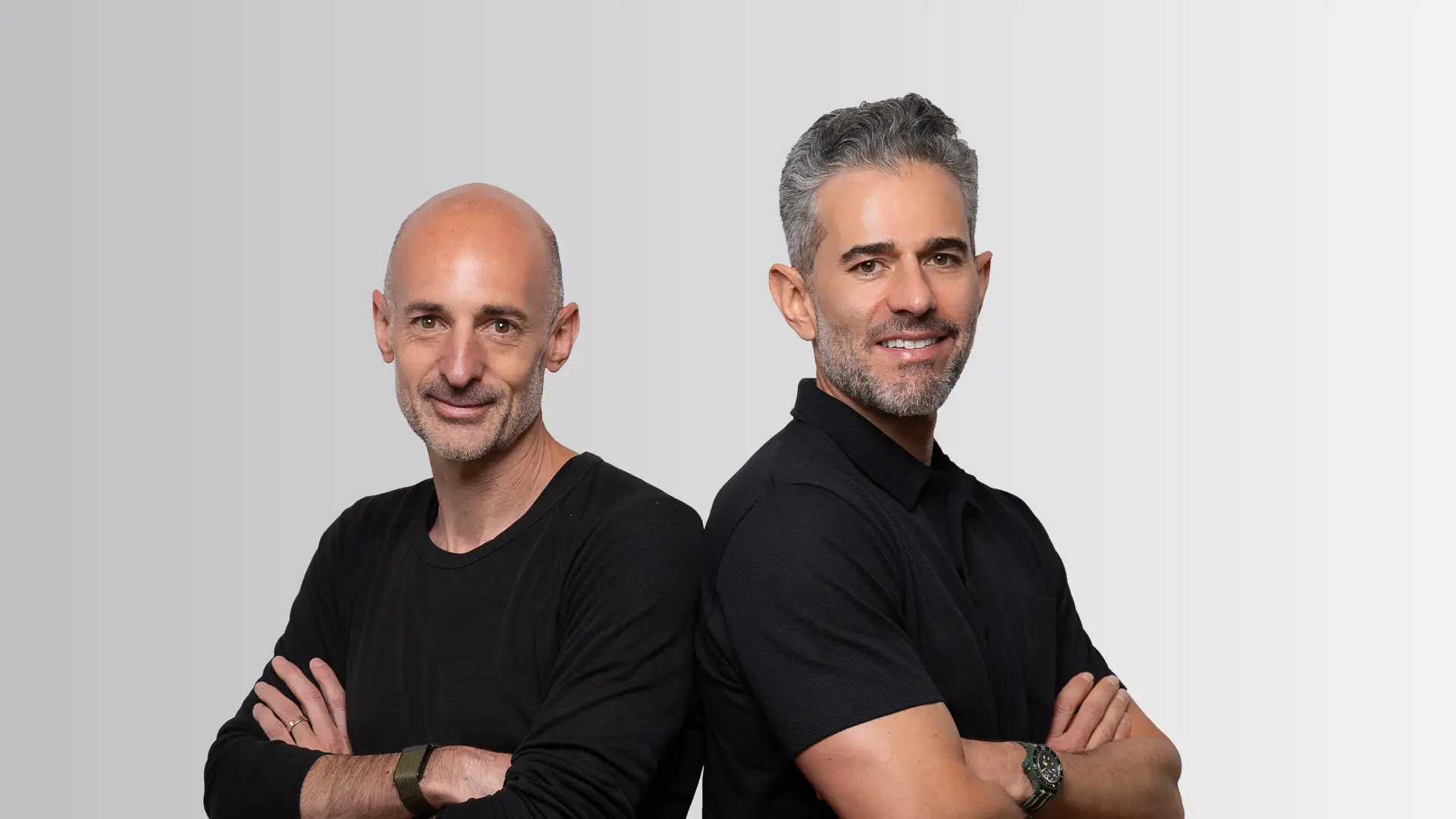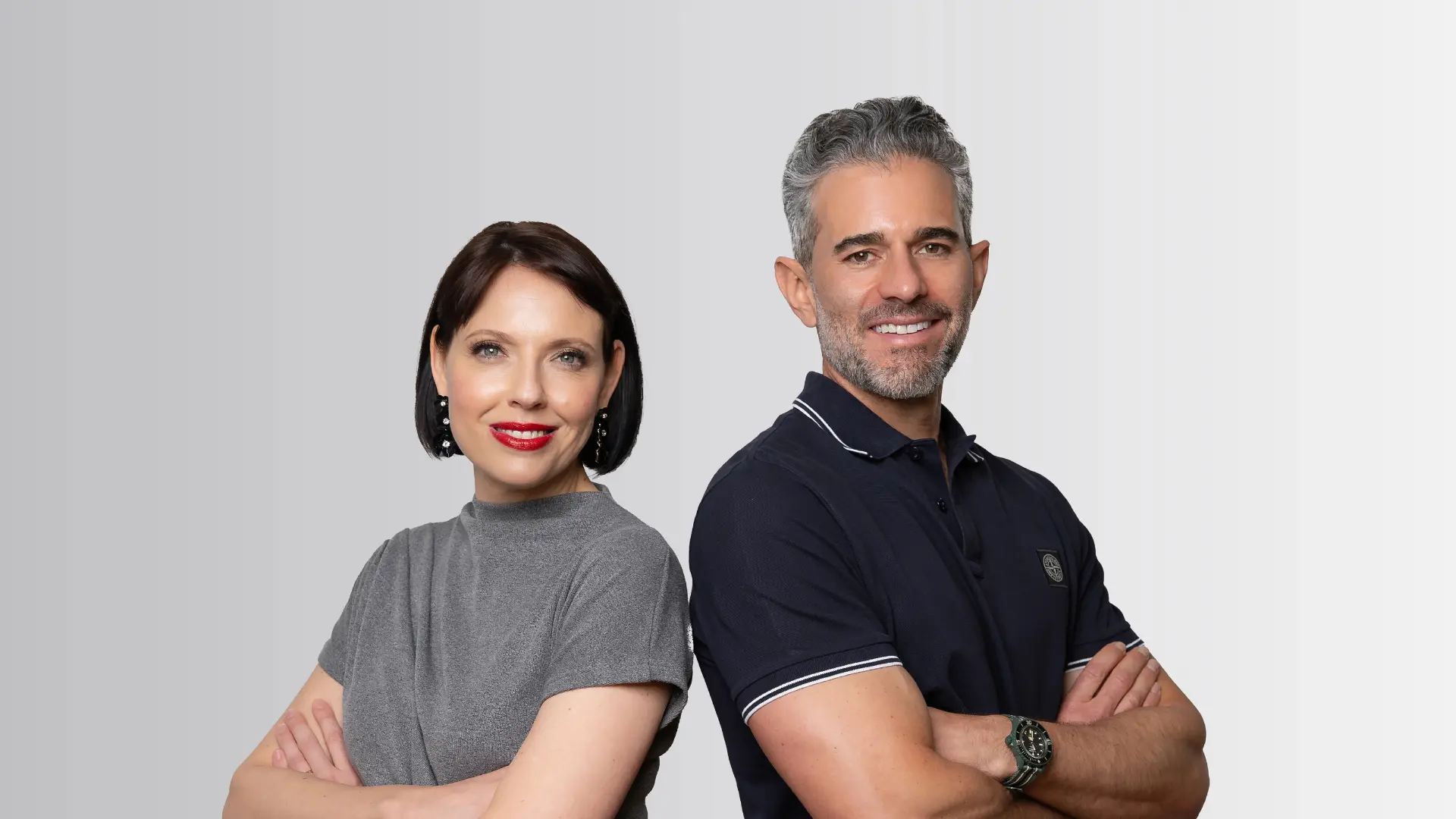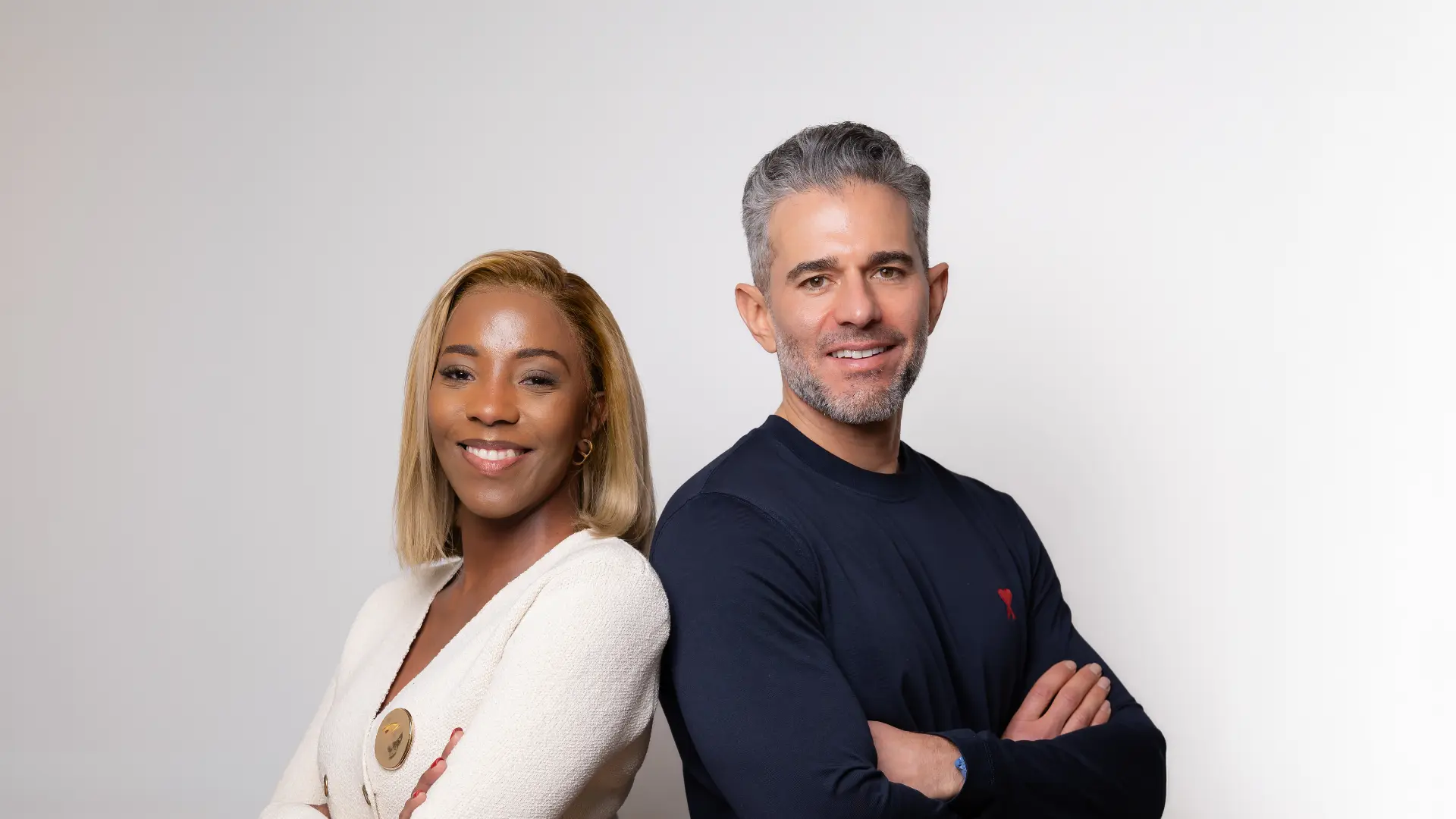In this episode of Here We Grow, Dov Girnun chats with Ronen Aires, entrepreneur, CEO, Thermalist, and High-Performance Coach, about what drives founders beyond their limits, the weight of production guilt, and the risk of burnout. Ronen shares how breathwork and the Thermalist Method can help leaders restore balance and rediscover their flow in business and life.
Transcript
Chapters
- 00:00 – 00:52 | Opening
- 00:52 – 04:26 | Know Thyself
- 04:27 – 08:00 | You Used to Wear Your Hustle Like a Badge of Honour
- 08:00 – 16:00 | Productivity Guilt
- 16:00 – 21:00 | It’s Lonely at the Top of the Summit
- 21:11 – 27:26 | Just Breathe
- 27:22 – 40:58 | The Thermalist Way
- 40:59 – 41:58 | Find Your Tribe
- 40: 59 – 44:31| Looking Ahead: A Legacy of Impact
00:00 - Opening
Dov: Welcome to the Here We Grow podcast. I’m your host, Dov Girnun. We share real stories, bold moves, and the tough truths behind business growth. Today's guest is a close friend of mine. Ronen Aires is a successful business builder, an entrepreneur, a published author, a thermalist, a high performance coach, and just an all-around really good guy.
Ronen: It’s good to be here, Dov.
00:52 - Know Thyself
Dov: Your home is like a sanctuary of wellness and peace. When I visited, we did ice bath, sauna, and spoke about microdosing psilocybin. You are the guru when it comes to looking after yourself from a wellness perspective. How did it start?
Ronen: In this world people are looking for the best diet, the best way to look after themselves, the best way to go about things. I am going to start off by saying the best thing anyone could do is know thyself.
Ronen: I have been an entrepreneur for 25 years. My personality is one that I cannot focus on one thing. I’ve got many balls in the air. At the beginning it was good, but as responsibilities grew, and bases got loaded, I was running myself to depletion.
Ronen: I’d get to December and I was like roadkill. If you repeat that year after year, you don’t recognise yourself. It was almost seen like you get the purple heart for busyness.
Ronen: When you see someone in Joburg and ask: How are you bru? They don’t say they’re fine. They say “Geez I’m so busy”. You see that glimpse in someone’s eye and it resonates.
04:27 - You Used to Wear Your Hustle Like a Badge of Honor
Dov: You’ve used the analogy that you used to wear your hustle like a badge of honour. I think there’s so many entrepreneurs, business owners, successful people who resonate.
Ronen: The world has changed. The most successful people don’t wear it as a badge of honour. Yes, you want to be busy. You want to be energetic. But looking after yourself so you can have a sustainability of energy has become quite important in the successful spheres of people.
Ronen: As entrepreneurs we get excited and throw our hearts and souls into everything. Leaders are stressed, stretched. We’re in overwhelm.
Ronen: People often ask how do you know when you’re burnt out? Sometimes it can be burnout, sometimes it can look like depression.
One of the easy ways to try and get a sense is to ask the question: Are you tired from life or tired of life?
Dov: That’s a really great question.
08:00 - Productivity Guilt
Ronen: If you look at all extreme sportsmen, if you look at anyone at the top of their game, they have periods where they're really busy and they're really getting into their flow. And then there's a pullback, there's a recovery time.
As businessmen or business people, we're terrible at the recovery. We're terrible at creating space to pull back.
Where do we get all our great ideas? Often when we're taking a break, having a shower, in the ice bath, wherever you are, that's where the inspiration comes.
We run ourselves so hard for so long we burn out.
Dov: There’s this drive now where you want to find ways to be bored. If I’m not busy, and I don’t have my phone, I almost feel like I’m not being efficient. It used to feel a little bit like a let down.
Ronen: There is a term in neuroscience called cognitive dissonance. When we are busy, we feel good. But there is this idealistic side of you thinking you could actually be busier.
That’s what’s happening with leaders. They’re so caught up on their heads they lose touch with their body.
16:00 - It’s Lonely at the Top of the Summit
Dov: You’ve been working with leaders for a number of years. What are the common struggles?
Ronen: I’ve always been fascinated by the human condition and what makes leaders tick.
In the first stage, leaders are so passionate.
They will give everything, even their identity, to either their job or their business that they create. But over time it wears them down and whatever propelled them to almost summit, the first mountain or the first summit, they get to the top, they have a look around at the view and it lasts for like minutes, hours.
And then they question, is that it? Or what's next? And it often presents in a meaning crisis. Because everything that propelled them for years or decades, they get to the place they thought they'd be happy.
And they've been focused on the destination more than the journey.
Dov: Out of all the leaders that you've met, the common denominator of the successful ones are the ones that are able to be appreciative and acknowledge the fact that this is who I am, this is what I've achieved, this is what I set out to do, and not have that feeling of being an anti-climax around what's next?
Ronen: Some leaders get to the top and they literally implode.
Leaders are much better at scaling businesses than scaling their productivity and resilience.
You don’t realise you can train your brain, just like you would train for a marathon, to withstand the pressures of life.
21:11 - Just Breathe
Dov: You’ve had the privilege of learning from the leading thermalist in the world. I would love to hear more about the benefits of cold and heat exposure, and breath work.
Ronen: So, when you're under pressure, and I'm sure someone has said to you, just breathe. Which is probably the right advice, but no one teaches you how to breathe.
How we breathe, how we move, how we use hot and cold, and how we connect is really the art and science of mastering our own biology to feel great.
Our breath is linked to our nervous system. And so that is the first and easiest and most potent way to change our state.
27:22 - The Thermalist Way
Ronen: Dr Susanna Søberg developed this method using cold plunges, sauna and breath work to feel physiologically better and mentally deal with the stresses of life. Regulating your body so that your metabolism is firing and you’re getting all the good chemicals in your brain, so serotonin, oxytocin, dopamine.
Dov: I remember when I first started doing the cold plunging, I had this like insatiable want to just get into a warm shower, you know, because obviously the instruction is you've got to let your own body temperature regulate and warm itself up, and that's actually where the magic happens.
Ronen: You've seen the trend where people are so obsessed with longevity and if I had to say to you one intervention that can reduce all forms of dying early, like the four horsemen of death: cardiac, cancer, diabetes and dementia, it will be sauna.
Not only will you feel great, not only will your cortisol levels, your stress levels, literally disappear, you'll have a great night's sleep, which means you'll have a great day the next day, but by about 40%, you reduce the all-cause mortality.
Dov: It's fascinating that we in South Africa, Joburg specifically, we only started cottoning onto this stuff recently. But these protocols have been around forever.
Dov: I was in Russia and visited a Bunya, a traditional sauna, and it was one of the most incredible experiences I’ve ever had. I left there feeling like a million bucks. They’ve been doing it for thousands of years, it’s part of their culture and history.
Ronen: You're getting better circulation, and you're getting all the benefits from a ritual sauna. But the key ingredient there is also doing it with people.
This is crucial to this episode. It’s one thing knowing what to do. It’s another thing doing it on your own.
If you are a leader today, it’s lonely. No one understands the pressure you’re under.
Ronen: That loneliness accelerates in that burnout phase. And so, when we do these things that make us feel better, the accelerant in all of that is doing it with like-minded people.
40:59 - Find Your Tribe
Ronen: One of the things that I would want everyone to understand is that what we're seeing is a pandemic of loneliness and whatever you choose to do that's good for you, find your tribe, find your people and do these things with people. This is the new wave of wellness.
41:58 - Looking Ahead: A Legacy of Impact
Dov: Final question I’ll ask every guest: When you’re 80, what do you want your 80-year-old self to tell your 40-year-old self you’ll be proud of?
Ronen: I think from a growth perspective, and I won't go to business first, for me is that there's harmony in my family, that I'm close to my kids, to my wife, and that for me is a pathway to legacy.
In terms of business, for me it's been less about success and more about impact. That I gave it everything I had, not just to be busy, but to make a real impact and difference in the world.
Dov: Ronen, brother, it's been such a privilege and so great and really appreciate your time and thank you for sharing so openly.

.webp)







.webp)
